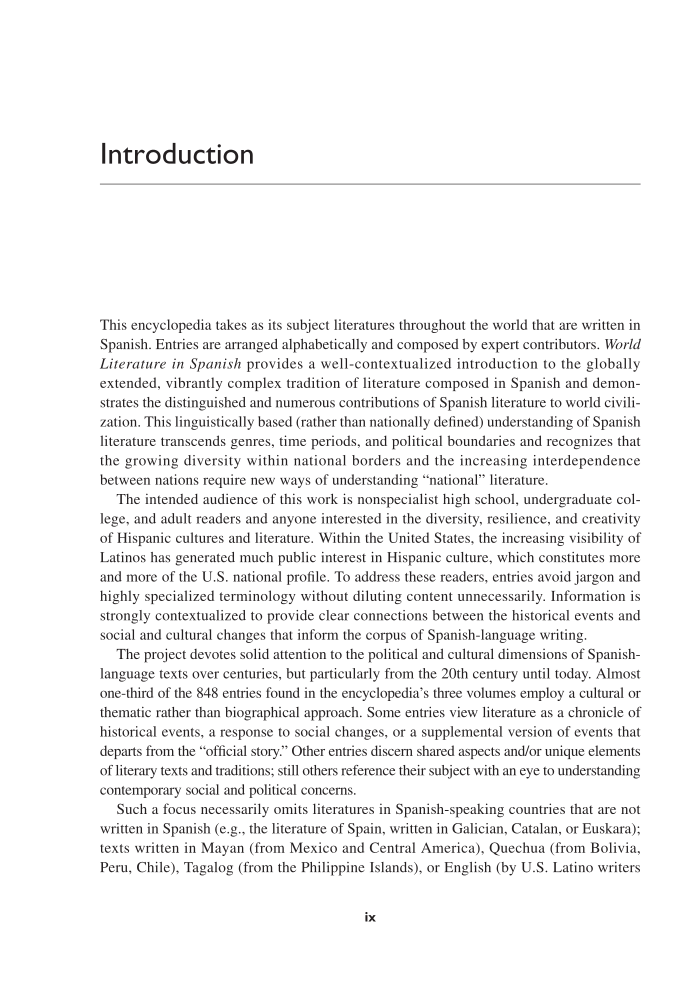Introduction This encyclopedia takes as its subject literatures throughout the world that are written in Spanish. Entries are arranged alphabetically and composed by expert contributors. World Literature in Spanish provides a well-contextualized introduction to the globally extended, vibrantly complex tradition of literature composed in Spanish and demon- strates the distinguished and numerous contributions of Spanish literature to world civili- zation. This linguistically based (rather than nationally defined) understanding of Spanish literature transcends genres, time periods, and political boundaries and recognizes that the growing diversity within national borders and the increasing interdependence between nations require new ways of understanding “national” literature. The intended audience of this work is nonspecialist high school, undergraduate col- lege, and adult readers and anyone interested in the diversity, resilience, and creativity of Hispanic cultures and literature. Within the United States, the increasing visibility of Latinos has generated much public interest in Hispanic culture, which constitutes more and more of the U.S. national profile. To address these readers, entries avoid jargon and highly specialized terminology without diluting content unnecessarily. Information is strongly contextualized to provide clear connections between the historical events and social and cultural changes that inform the corpus of Spanish-language writing. The project devotes solid attention to the political and cultural dimensions of Spanish- language texts over centuries, but particularly from the 20th century until today. Almost one-third of the 848 entries found in the encyclopedia’s three volumes employ a cultural or thematic rather than biographical approach. Some entries view literature as a chronicle of historical events, a response to social changes, or a supplemental version of events that departs from the “official story.” Other entries discern shared aspects and/or unique elements of literary texts and traditions still others reference their subject with an eye to understanding contemporary social and political concerns. Such a focus necessarily omits literatures in Spanish-speaking countries that are not written in Spanish (e.g., the literature of Spain, written in Galician, Catalan, or Euskara) texts written in Mayan (from Mexico and Central America), Quechua (from Bolivia, Peru, Chile), Tagalog (from the Philippine Islands), or English (by U.S. Latino writers ix
Document Details My Account Print multiple pages
Print
You have printed 0 times in the last 24 hours.
Your print count will reset on at .
You may print 0 more time(s) before then.
You may print a maximum of 0 pages at a time.





































































































































































































































































































































































































































































































































































































































































































































































































































































































































































































































































































































































































































































































































































































































































































































































